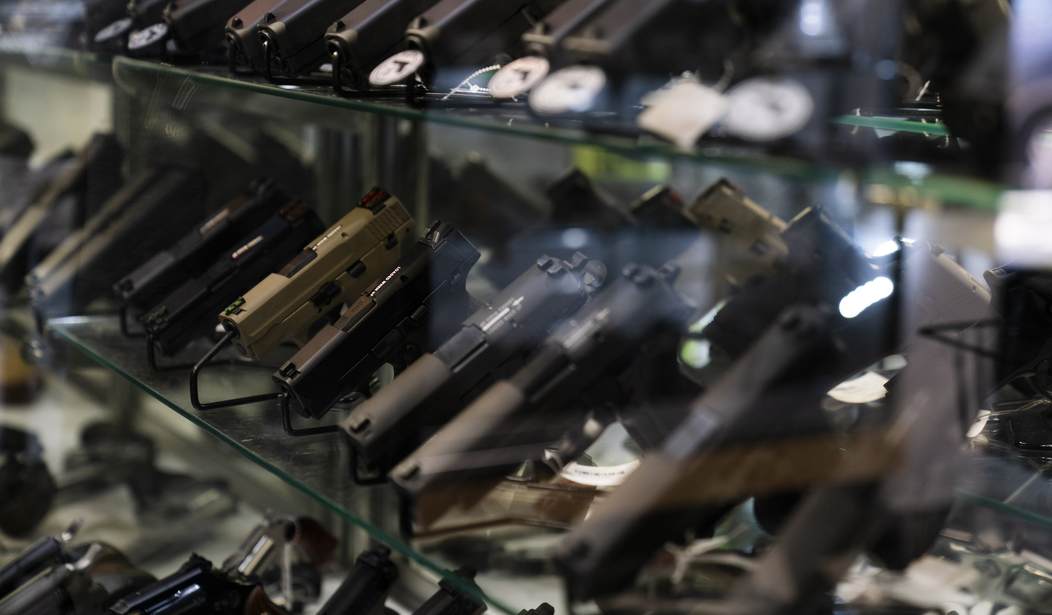Thanks to a disappointing midterm for Republicans in Michigan, Democrats now hold majorities in both chambers of the state legislature as well as control of the governor’s mansion, and Gov. Gretchen Whitmer has already signed several pieces of gun control legislation into law this year, including “universal” background checks and a gun storage law.
But while the newfound majority of anti-gun politicians are taking aim at legal gun owners, thanks to a bipartisan vote back in 2020 tens of thousands of convicted felons can now potentially regain their Second Amendment right to keep and bear arms. That wasn’t one of the intended consequences of the automatic expungement system set up by lawmakers a few years ago, at least for most of the legislators who voted for the bill, but it’s now a reality for thousands of convicted felons in the state.
The Michigan State Police said the expungement of non-assaultive felonies for the roughly 105,000 individuals included in the initial automatic expungement sweep Tuesday will make them eligible to now own firearms in instances where they were prevented before by the felony on their records.It’s unclear, practically, what that state-level clearance will mean for the individuals if federal law fails to recognize the computer-generated expungements processed last week because they lack a formal court order.Attorney General Dana Nessel’s office agreed that those individuals would be free to own a firearm at the state level. But she noted some of those individuals may have been eligible to own a firearm prior to expungement under different state laws.“Everyone receiving an automatic expungement meets or exceeds the standards to qualify for a traditional expungement, which provides the same avenue for firearm purchase and possession rights restoration,” said Danny Wimmer, a spokesman for Nessel’s office.
Troy-based attorney Ian Redmond said the conflict between state and federal laws when it comes to firearm purchases has caused issues in the past for his clients with former felonies.When Michigan passed laws in 2014 allowing certain felons to purchase a gun three to five years after completing their sentence or parole, the FBI found the state permissions fell short of what was needed for the conviction to be overlooked or removed from a federal criminal background check database because it lacked a formal court order of expungement, Redmond said.Redmond worried the algorithm used last week to process hundreds of thousands of individuals with misdemeanors and felonies would similarly lack the court orders needed to change federal records.In that sense, he said, an individual could get a purchase license from a Michigan law enforcement agency, but be denied the right to purchase a gun at a federal firearm licensee such as Dunham’s Sports, which would run a criminal background check through a federal database.“How are they supposed to get all of this straight?” Redmond said of his clients. “I do not want people to assume that their conviction has been expunged when technically it hasn’t been expunged and the FBI may or may not recognize it. In that scenario, they run the risk of committing further felonies if they’re not cautious.”The State Court Administrative Office on Friday acknowledged the automatic expungements that began Tuesday are set aside “by operation of law” and will not include a formal court order confirming the expungement.When contacted Friday, the FBI did not immediately say whether it would honor the state’s automatic expungements in terms of federal record keeping.
My guess is that the FBI isn’t going to recognize those automatic expungements any more than the federal government adopted the state’s position back in 2014, and Redmond is right to be concerned about what that will mean for Michigan residents with felony records who believe they’re now free and clear to purchase a firearm at retail. Still, the head of the state association of police chiefs believes the expungements will have an impact.
For Bob Stevenson, executive director for the Michigan Association of Chiefs of Police, the responsibility for law enforcement post-expungement seemed clear: Police agencies would be required to grant a purchase license to an individual who had a felony expunged Tuesday so long as there were no other un-expunged felonies on their records.“We would follow the expungement law — the spirit and the letter of it — and it would be like (the felony) didn’t exist,” Stevenson said. “And if it didn’t exist, then they would be entitled to it.”He considered the eligibility for gun ownership an unforeseen consequence of the bill that needs to be re-examined, though he wasn’t sure how.“The spotlight is on it after Michigan State, when a person who, if they had been convicted with the felony they were charged with, would not be able to get a gun legally,” Stevenson said of 43-year-old shooter Anthony McRae.McRae, who killed three and injured five at Michigan State University Feb. 13, had been charged with a felony for carrying a concealed pistol without a license, but was allowed in 2019 to plead down to a misdemeanor.The Michigan Sheriffs Association opposed the automatic nature of the expungements when they were debated in 2020 because it removed the ability to evaluate on a case-by-case basis an individual’s eligibility for expungement and the freedoms that come with it — such as owning a gun, said Matt Saxton, the association’s executive director and a former Calhoun County sheriff.“I do feel people who have made mistakes in the past and paid for those mistakes and are now lead a law-abiding life, maybe should have that opportunity to buy a firearm,” said Saxton. But, he said, that consideration should be a “case-by-case situation.”Tom Lambert, legislative director for Michigan Open Carry, also noted there are certain crimes of violence that should lead to preclusion of firearms. But there are others that should eventually get their gun rights back, he said.“There are so many felonies in the law today over things that shouldn’t be a felony,” Lambert said. “We’re starting to realize maybe we went a little too far with this.”








Join the conversation as a VIP Member